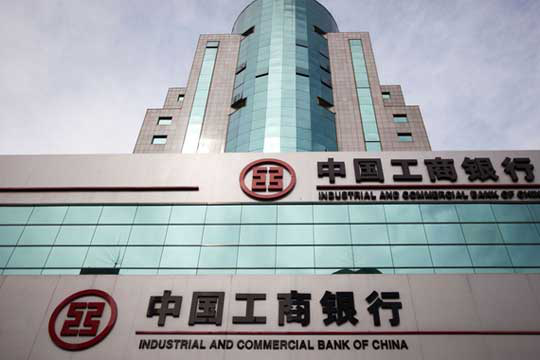By Timothy Sibasi, freelancer at Juka Africa Agency, Kampala Uganda
The Industrial Commercial Bank of China (ICBC) has embarked on a strategy that encourages Chinese state and private enterprises to prioritize their interests to boost Uganda's Gross Domestic Product (GDP) in the belief that the nation's economy can double in size to US$70 billion by 2025.

Top executives of Stanbic Bank Uganda and China's ICBC Bank have just signed a joint partnership deal with expectations that business opportunities in Uganda’s oil and gas sector will flourish and can attract more foreign direct investments (FDI).
Experts are forecasting Uganda’s GDP projection could reach US$70 billion spurred on by the rapid expansion of the domestic oil and gas sector by 2025. The chairperson of Uganda's Bankers Association, Patrick Muhirwe said the growth will be on account of investment in the country’s lucrative oil and gas sector.
"Over the next two years before Uganda’s first oil is expected, 15-20 billion dollars will be invested in the sector," said Muhirwe.
The ICBC-Stanbic tie up is geared at providing opportunities for Chinese enterprises as they seek more business partnerships in Uganda. The opportunities are varied, which would range from construction to agriculture among others.
Stanbic Bank Uganda and ICBC, the world's largest bank by assets, have already helped current and potential investors hoping to seize lucrative deals in the African nation.
ICBC holds shares in Standard Bank of South Africa, which is the parent company of Stanbic Bank Uganda.
Apparently, China's CNOOC (China National Offshore Oil Corporation) oil giant under the US$2 Billion deal holds the rights to develop the Kingfisher field in Western Uganda. CNOOC will also build an approximately 31-mile pipeline from the field to Kabale where a proposed oil refinery will be be expected to go into operations.
"CNOOC Uganda Limited is grateful that the government of Uganda has approved the field development plan and the petroleum resolve report of Kingfisher, which in fact ushers in the phase of field development and indeed the planned key milestone for the development of Kingfisher oil field," said Jin Weigen, vice president of CNOOC Uganda.
CNOOC estimates its operations in Kingfisher could produce as much as 40,000 barrels of oil per day. Uganda has a total oil deposit of about 3.5 billion barrels of oil in its reserves estimates.
Uganda plans to start the commercial production of oil by 2020. The nation plans to construct a 60,000-barrel-a-day refinery and a crude oil pipeline that will run from the oil wells in the western part of the country to the Tanzanian seaport of Tanga.
Uganda has been described by the World Bank as the hottest inland exploration frontier in the world and the country to watch in the oil and gas frontier, due to its commercial discovery of an estimated 6.5 billion barrels of oil, 1.4 billion of which are considered recoverable.
The future looks bright for Uganda and with support from Chinese investors, we can expect boom times in the years ahead for the African nation.
(The opinions expressed here do not necessarily reflect the opinions of Panview or CCTV.com. )

Panview offers a new window of understanding the world as well as China through the views, opinions, and analysis of experts. We also welcome outside submissions, so feel free to send in your own editorials to "globalopinion@vip.cntv.cn" for consideration.
















